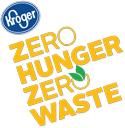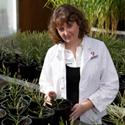Companies
Methane Producer To Build $120M Food Waste Digester In Philadelphia Area
Online Retailer In U.K. Sells Wonky Beef Cuts To Reduce Waste
Rockefeller Grant Funds Baltimore Food Waste Initiative
N.Y. State Allocates $2M For Pantries, Municipalities To Combat Food Waste
Kroger Fund Food Waste Prevention Curriculum For El-Sec Students
 Grocery chain Kroger has joined a Zero Hunger | Zero Waste partnership with World Wildlife Fund (WWF) to prevent and recover food waste in U.S. elementary and secondary schools. WWF, whose WIld Classroom provides an environmental curriculum for teachers and parents, is expanding the curriculum with the help of a $400,000 grant from Kroger’s foundation to focus on promoting food conservation education and best practices. The Food Waste Warrior Toolkit, a classroom-friendly curriculum that aligns with USDA and state educational standards, turns the school cafeteria into a classroom to inspire students to become Zero Heroes by making a lifelong commitment to reduce food waste. The free toolkit was tested in Washington, D.C., using resources from science, math, ecology, conservation, and sustainability.[Image Credit: © The Kroger Co.]
Grocery chain Kroger has joined a Zero Hunger | Zero Waste partnership with World Wildlife Fund (WWF) to prevent and recover food waste in U.S. elementary and secondary schools. WWF, whose WIld Classroom provides an environmental curriculum for teachers and parents, is expanding the curriculum with the help of a $400,000 grant from Kroger’s foundation to focus on promoting food conservation education and best practices. The Food Waste Warrior Toolkit, a classroom-friendly curriculum that aligns with USDA and state educational standards, turns the school cafeteria into a classroom to inspire students to become Zero Heroes by making a lifelong commitment to reduce food waste. The free toolkit was tested in Washington, D.C., using resources from science, math, ecology, conservation, and sustainability.[Image Credit: © The Kroger Co.]
Target Is Testing App That Highlights Foods Nearing “Best Used By” Dates That Sell At A Discount
German Airport Foodservice Company Tests Surplus Food Distribution App

The foodservice subsidiary of Munich Airport is testing an app that lets airport visitors, passengers, and employees order surplus food from the airport’s eateries at discount prices. The food is available for pickup between 8:00 pm and 9:30 pm every day. The first restaurant at Munich Airport to join the Allresto pilot project is Surf & Turf in the Munich Airport Center (MAC). A Danish start-up created the "Too Good To Go" app – its goal is to avoid food waste, save money, and foster sustainability – which is now running in nine European countries.[Image Credit: © Too Good To Go]
Consumers
Using, Rather Than Tossing, Surplus Foods Saves A Lot Of Money For Family Of Four
 A Boston globe writer who decided earlier this year to spend more time with her children says she needed to trim grocery costs to make up for lost income. By cutting food waste – using instead of throwing away things like wilted celery and cherry jar syrup – she got her monthly grocery bill down to about $420. That’s considerably less than a “liberal” grocery budget of $1,016, and $100 less than what the USDA calls a “thrifty” plan of $520 for a four-person family with young kids. At a time when the average American family wastes about $1,600 in food a year, Elspeth Hay says preventing food waste wasn’t really a chore this summer: “frugality tasted more like freedom.”[Image Credit: © Esther Merbt from Pixabay]
A Boston globe writer who decided earlier this year to spend more time with her children says she needed to trim grocery costs to make up for lost income. By cutting food waste – using instead of throwing away things like wilted celery and cherry jar syrup – she got her monthly grocery bill down to about $420. That’s considerably less than a “liberal” grocery budget of $1,016, and $100 less than what the USDA calls a “thrifty” plan of $520 for a four-person family with young kids. At a time when the average American family wastes about $1,600 in food a year, Elspeth Hay says preventing food waste wasn’t really a chore this summer: “frugality tasted more like freedom.”[Image Credit: © Esther Merbt from Pixabay]
Market News
Kiwi Scientists Figure Out How To Convert Fermented Plant Pulp Into Flour
 New Zealand scientists have developed a technology that transforms pinot noir grape – and other plant – fermentation by-products into zero-waste, gluten-free, vegan, low-carb, low-fat, fiber- and nutrient-rich flour. Greenspot Technologies has successfully created flour from pinot noir, sauvignon blanc, apple, beetroot, orange, carrot and parsnip pulp. The sophisticated fermentation process was developed in the research labs of the University of Auckland. The key to the process is the conversion of sugars in the pulp into nutritious protein. The flours can be used to make bread, snack bars, protein bars, biscuits, vegan products, pasta, pizza, or as a dietary supplement. The start-up is using an investment of $782,700 to spread the word in France.[Image Credit: © BY GREEN SPOT TECHNOLOGIES]
New Zealand scientists have developed a technology that transforms pinot noir grape – and other plant – fermentation by-products into zero-waste, gluten-free, vegan, low-carb, low-fat, fiber- and nutrient-rich flour. Greenspot Technologies has successfully created flour from pinot noir, sauvignon blanc, apple, beetroot, orange, carrot and parsnip pulp. The sophisticated fermentation process was developed in the research labs of the University of Auckland. The key to the process is the conversion of sugars in the pulp into nutritious protein. The flours can be used to make bread, snack bars, protein bars, biscuits, vegan products, pasta, pizza, or as a dietary supplement. The start-up is using an investment of $782,700 to spread the word in France.[Image Credit: © BY GREEN SPOT TECHNOLOGIES]
Other
No Longer Discarded, Experimental Spuds Head To Oregon’s Food Banks
 Until recently, the batches of experimental potato varieties grown at an Oregon agricultural research facility were deemed unsuitable for commercial sale and carted off to landfills. But thanks to a partnership between the Hermiston Agricultural Research and Extension Center and the Walchli Farms potato processors, most of the potatoes will go now to the Oregon Food Bank to be distributed to community food pantries across the state. The endeavor involves many hands: donated labor and equipment to harvest the potatoes; trucks provided by a trucking company; donated processing, washing, and packaging; and storage provided by a local farmer. The total haul surpassed 100,000 pounds of potatoes.[Image Credit: © Hans Braxmeier from Pixabay]
Until recently, the batches of experimental potato varieties grown at an Oregon agricultural research facility were deemed unsuitable for commercial sale and carted off to landfills. But thanks to a partnership between the Hermiston Agricultural Research and Extension Center and the Walchli Farms potato processors, most of the potatoes will go now to the Oregon Food Bank to be distributed to community food pantries across the state. The endeavor involves many hands: donated labor and equipment to harvest the potatoes; trucks provided by a trucking company; donated processing, washing, and packaging; and storage provided by a local farmer. The total haul surpassed 100,000 pounds of potatoes.[Image Credit: © Hans Braxmeier from Pixabay]
Regulation
Austin’s Eateries Must Recycle Unsold Food – Or Compost It
Research & Insights
Cold Plasma Technology: Future Food Could Easily Be Made Mold-Free
 Plant scientists in Australia are testing the use of cold lightning plasma technology to extend the life of fruits and vegetables by keeping them mold-free. Food passes under a cold “flame” plasma, similar to lightning in a storm, that kills bacterial, fungal and viral contaminations. Plant scientist Kirsty Bayliss says the technology could result in a higher yield, greater revenue, and a chemical-free product that is more attractive to buyers. She has worked extensively with strawberry and avocado growers, treating mold and extending shelf life. "We've had avocados that are three weeks after harvest and are still fresh," she says, adding that the next major step for the technology is to create a company and garner investment.[Image Credit: © Murdoch University]
Plant scientists in Australia are testing the use of cold lightning plasma technology to extend the life of fruits and vegetables by keeping them mold-free. Food passes under a cold “flame” plasma, similar to lightning in a storm, that kills bacterial, fungal and viral contaminations. Plant scientist Kirsty Bayliss says the technology could result in a higher yield, greater revenue, and a chemical-free product that is more attractive to buyers. She has worked extensively with strawberry and avocado growers, treating mold and extending shelf life. "We've had avocados that are three weeks after harvest and are still fresh," she says, adding that the next major step for the technology is to create a company and garner investment.[Image Credit: © Murdoch University]
Copyright 2026 Business360, Inc.

